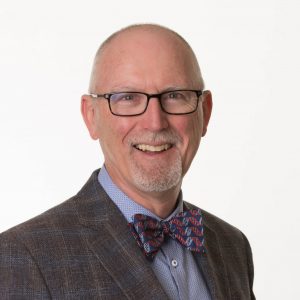 We are featuring a Q&A interview conducted by Canadian Coalition for Global Health Research (CCGHR) with Dr. Brian Cameron, one of the co-instructors for SURG 510: Surgical Care in International Health.
We are featuring a Q&A interview conducted by Canadian Coalition for Global Health Research (CCGHR) with Dr. Brian Cameron, one of the co-instructors for SURG 510: Surgical Care in International Health.
Dr. Brian Cameron is a Professor of Pediatric Surgery and Director of the International Surgery Desk at McMaster University. His global surgery experience started with 4 years as a general surgeon, faculty, and acting Dean of the Fiji School of Medicine. At McMaster, Dr. Cameron coordinates partnerships and visiting surgical trainees from Uganda and Guyana as well as teaching global health students and networking faculty and residents involved in surgical care through the MacGlObAS collaborative.
SURG 510 is currently being updated and will be offered in September 2020.
For more information on how to register for SURG 510 as an independent course, visit here. To learn more about our SURG 510 and other courses in our curriculum, see here.
Can you start off by telling us about your global health experience and how you got involved in global surgery?
My experience, in brief, in global surgery, really started the first four years of my career teaching and practicing surgery in Fiji, at the Fiji School of Medicine, and subsequently, when I returned to North America, I got involved with practicing and teaching and helping to train surgeons in Guyana in South America. Most recently we have had new collaborations with departments of obstetrics, anesthesia, and surgery, which will allow us to do more collaborative education and research based in the Global Health Office here at McMaster.
My first involvement in Global Health was when my wife and I went to Sierra Leone when I was a medical student with a group called Canadian Crossroads International. This visit as a medical student challenged me in a lot of ways. It took me a while to digest it, the overwhelming need, difficulty of having any impact on it, and the frustrations of seeing simple interventions fall apart because of logistics. One example of this challenge was that I saw babies dying of tetanus, and you really can’t do much about that. You need to vaccinate the mother, so I was asking and they said ‘oh yeah, we had a vaccination program.’ So I asked ‘Well what happened to it?’ and they instructed me to look outside the window of the house I was staying in at this old vehicle with grass growing out through the windows. On the side of the vehicle it says ‘mobile travelling vaccination program.’ When I asked what happened to the program they responded that the program had only received short-term funding, and then they decided that they needed the petrol to run the generator at the hospital rather than the vehicle. In the end, the vaccination program ended and babies were coming to the clinic dying of tetanus. So seeing that – that puts global health at a whole – and certainly tetanus, which is a condition of great importance to surgeons, into perspective. As surgeons in Canada we assume people are routinely vaccinated, and when we take care of injured persons here we don’t really worry about tetanus. But in this setting, out in Sierra Leone, tetanus was a real concern because people were not getting vaccinated.
So that experience really connected global health to surgical care for me. I had found that experience to be very challenging, and as I went into surgical training, I decided to try, rather than avoid that challenge, but to face that challenge and learn more about it. I felt that the best way for me to get prepared to work in that kind of environment would be to work in rural Canada. So the first job I took was up in northern Newfoundland.
Why is health equity a passion of yours? What are some of the main issues in global surgery that drive you?
I think global surgery has to do with directly facing and dealing with inequities in our own country and the world. It just doesn’t seem right that we have so much, and it’s just a complex system as to why low resource settings have low resources. It’s a very challenging and complex problem. It’s something I enjoy getting connected to. I find that the people involved in global health are really, pretty, intrinsically motivated. They are passionate about social justice.
How did you decide to tackle health inequities head on?
When we came back to Canada from Fiji, I felt like I I needed to continue that connection in some way. For myself, to continue to find a way to be part of that environment and contribute to something. So that has been motivating for me, for sure.
What advice do you hear yourself giving to medical students, residents, and graduate students who are interested in global health?
Work in one place. Do what you promised you would do. Try not to let people down. Keep it simple. It is easier for somebody to help you if there is a specific focus. It’s less easy to help somebody develop a concept; that’s very difficult. The best that I can do is that if someone has an idea, then I can help them think it through and give them some direction on the realities of some of the strengths and challenges that exist in global surgery.
To see the full interview report at CCGHR, click here.
View Dr. Brian Cameron’s full biography here.
